雅思考试主要是通过对考生听、说、读、写四个方面英语能力的考核,综合测评考生的英语沟通运用能力,实现“沟通为本”的考试理念。对于雅思考生来说,也有很多考试难点和政策盲区需要帮助解答。今天雅思无忧网小编准备了雅思面试口语题目答案大全及解析 雅思口语part3做题技巧?我这部分总是分数比较低 - ...,希望通过文章来解决雅思考生这方面的疑难问题,敬请关注。

雅思口语Part 3的答题技巧演示。
今天,环球青藤朱滚睁国伟老师和大家分享一篇关于雅思口语Part 3的答题技大毕岁巧演示文章,值得大家阅读学习。更多精彩好文章,尽在环球青藤!雅思口语Part 3问题1:What are some reasons why people eat out ?雅思口语数唤Part 3的答题技巧演示1:It’s a tradition that we intend to treat our friends and family on some special occasions , especially on birthday , and some important days . a fancy restaurant can provide us decent dining environment , delicious cuisines and thoughtful service . by the way , these days , office workers are getting busier , they have no time to prepare home cooked food , eating outside is the only remaining option .雅思口语Part 3问题2:Do you prefer to eat at a restaurant or eat at home ?雅思口语Part 3的答题技巧演示2:I prefer to eat at home . my mother is good at cooking , she usually prepares a table of delicious dishes at home . by the way , my country has a notorious reputation of food security . so eating at home is much safer.雅思口语Part 3问题3 What are the differences between eating at home and eating at restaurants ?雅思口语Part 3的答题技巧演示3: Eating at restaurants , you may enjoying a decent dining environment , cuisines with different taste and flavor , and thoughtful service . compared to eating at restaurant , dishes prepared at home are simple but balanced and nutritious .雅思口语Part 3问题4In my opinion what is healthy food ?雅思口语Part 3的答题技巧演示4: A healthy meal should be balanced and nutritious . in each meal , we need to intake various vegetables , different kinds of fruits and many types of proteins . by such way , we may maintain a good physical health .雅思口语Part 3问题5What are some examples of unhealthy food ?雅思口语Part 3的答题技巧演示5:In my opinion , there are many types of unhealthy food , like western style fast food , desserts with high calories , and food sold at street vendors . food like French fries , hamburgers are very harmful to our health .以上即是本次环球青藤口语老师朱国伟的关于雅思口语Part 3的答题技巧演示文章分享。逻辑能力强,精通口语词汇。对于欧美的文化很了解。多年的教学经验帮助了不少雅思考生顺利进入理想学府,桃李满园。相信他的这篇文章必定能给与烤鸭们不少帮助和启发。如果对于我们雅思课程想了解更多的话,欢迎与环球青藤课程顾问做进一步的咨询与了解,这里有不同的单项课程以及全项课程,适合不同要求的你!后,环球托福预祝各位雅思考试取得!早日圆满出国留学梦!
雅思口语part3做题技巧?我这部分总是分数比较低 - ...
洛阳大华雅思提醒您,
一)题目的性质从原来较为生活化的Part 1和Part 2转化为Part3中带有强烈学术意味的考题。比如How does scientific research benefitspace, medical, environmental and information technologies? 该题问科学研究给现代技术带来怎样的好处。
二) 很多考题不再注重具体的细节描述或陈述,而转向考察考生的抽象思维能力。比如Does money bring people more happiness or make them less secure? 该题问钱会给人带来幸福,还是使人更不安全。碰猜拿
三)有相当数量的题目会让考生去对某个话题进行评估(Asses*ent),特别是利弊方面的评估;还有些考题让你对未来进行猜兆局测(Speculation),让你说10年或20年之后某事物将会怎么样。比如In your opinion, what languages will become morepopular in the future? 该题要你猜测将来什么语言会变得流行起来。当然,你还必须说明理由。
总的来说,Part 3已经超越了日常生活层面,进入到人的深层思维体系之中。它着重的是四样东西:world views(世界观),beliefsystems(信仰体系),values(价值观),attitudes(态度)。要把这些东西说好,除了平时的语言功底和随机应变的能力以外,考生还需要具备一些人文方面的素养。
虽然Part 3的问题错综复杂,但根据笔者的教学及实战经验,我们完全可以把所有Part 3的考题分为以下的九个大类,每一大类都含有若干典型的问话套路:
一)阐述原因(Giving reasons)
Why do you think …?
Why is it important to do…
Do you think …? Why (not)?
Is it a good idea to (do…)? Why (not)?
二)预测未来(Providing speculations)
How do you see … changingin the future?
Do you think that in thefuture people will …?
What do you think willhappen to … in the future?
In your opinion,which/what … will become more … in the future?
三)描述侧面(Describing various aspects)
In what ways …?
What kind/sort/type of …?
How important is it for …to (do …)?
How has … changed (in yourcountry) in the last … years?
四)维护立场(Defending your choice)
Is it better to (do …) or(do …)?
笑搭Should people always … oris it a good idea sometimes to (do …)?
Which is more important toyou: … or …?
Which do people in yourcountry prefer: … or …?
五)利用常识(Using your common sense)
Any yes-no question thatinvolves a clearly positive or negative answer
Any question that asks youabout the roles, responsibilities and general qualities of a social group
Any question that asks youabout common knowledge, everyday experience and traditional culture
六)提供方案(Offering solutions)
What can … do to (do …)?
What can be done to (do…)?
What do you think is thebest way for … to (do …)?
Are there other wayspeople can …, apart from …? How?
七)因果关联(Connecting causes with effects)
What effect has … had on…?
How has … affected …?
Are there any negativeeffects of … doing …? What are they?
What do you think causes …to …?
八)对比异同(Comparing similarities and differences)
How does … compare with …?
How do you compare … with…?
Do you think … wasdifferent for your grandparents?
What are similarities anddifferences between … and …?
九)陈述利弊(Illustrating advantages and disadvantages)
What are the advantages anddisadvantages of …?
What are the differentadvantages of … and …?
What do you think theirdisadvantages are?
How do people in yourcountry feel about (a controversial issue)?
从《剑桥雅思》的口语出题风格来看,一般一套口语题的Part3部分会有6道问题,这一点大家可以参阅《剑一》到《剑七》的真题。下面的这套题从place到travel/touri*再到old buildings/historic buildings,提出了一系列问题:
Why do you think peoplelike to travel to different places?
→ 第一类:阐述原因(Giving reasons)
How do you see touri*changing in your country in the future?
→ 第二类:预测未来(Providing speculations)
Why is it important toprotect the countryside?
→ 第一类:阐述原因(Giving reasons)本文
In what ways is thecountryside in danger in your country?
→ 第三类:描述侧面(Describing various aspects)
Why are historic buildingsand monuments important to a city?
→ 第一类:阐述原因(Giving reasons)
Is it better to keep oldbuildings, or build new modern ones?
→ 第四类:维护立场(Defending your choice)
由此可见,任何Part 3的问题都可以归入以上九大类中的某一类。在本系列的后面九讲中,针对每一类问题的特殊性,为大家一一分析破解它们的方法,也希望广大“烤鸭”们能切实利用这些方法来为自己的考场发挥添砖加瓦。
总的来说,雅思口语考试Part 3作为考试中第三部分,也是最困难的一个部分,所以把握好总结的雅思口语考试Part 3答题技巧也就非常重要.
雅思考试口语面试的问题
环球教育老师为同学们总结雅思口语考试必备问题如下,希望对您的备考有所帮助~
1. What's your name?
2. Does your name have any special meaning?
3. Where were you come from?
4. What kind of landscape surrounds your hometown?
5. What is the main crop in your hometown?
6. What is the difference between Beijing and your hometown?
7. What are the main places of interest in your hometown?
8. What is the climate like in your hometown?
9. What is the character of the people like in the region where you live?
10. What are the differences in accent between the people of your hometown and Beijing?
11. What is people's favorite food in your region?
12. How do you make dumplings?
13. What do you do during the Spring Festival?
14. Why is the Spring Festival so important to Chinese people?
15. Can you describe one of the main festivals celebrated in your country?
16. Tell me something about the Lantern Festival.
17. Tell me something about the Qing Ming Festival.
18. Tell me something about the customs of your country.
19. How long have you lived in Beijing?
20. What is the weather like in Beijing?
21. How do you compare the climate in Beijing with that in your hometown?
22. What place in Beijing do you like best? Why?
23. Which is the worst place you've been to China?
24. Which is the best place you've been to China?
25. What places in Beijing should a foreigner visit? Why?
26. Are there any special customs about wedding in your region?
27. Describe a traditional wedding ceremony.
28. How do Chinese usually celebrate birthdays?
29. Are there any traditions concerning the birth of a baby?
30. Do you enjoy shopping?
不知道以上内容能否对您的雅思备考有些许帮助,如有雅思备考相关问题可以随时在线咨询我们的环球教育老师~~第一时间为您制定计划解答疑问,希望同学蔽陪们都可以取得理想的雅思分数~
环球教育秉持教育成就未来的理念,专注于为中国学子提供优质的出国语言培训及配套服务。环球教育在教学中采用“九步闭环法”,帮助学生快速提升学习效能,同时提供优质的课后服务,跟进学生学习进程,液并数为优质教学提供坚强的保障。目前,环球教育北京学校已构建了包含语言培训、出国咨询、国际课程、闹首游学考察、在线课程等在内的一站式服务教育生态圈。相关问题可在线免费咨询,或拨打免费热线400-616-8800~~
如何回答雅思口语考试中的描述题(第三部分)? - 百度...
环球教育老师为同学们总结雅思口语考试必备问题如下,希望对您的备考有所帮助~
1. What's your name?
2. Does your name have any special meaning?
3. Where were you come from?
4. What kind of landscape surrounds your hometown?
5. What is the main crop in your hometown?
6. What is the difference between Beijing and your hometown?
7. What are the main places of interest in your hometown?
8. What is the climate like in your hometown?
9. What is the character of the people like in the region where you live?
10. What are the differences in accent between the people of your hometown and Beijing?
11. What is people's favorite food in your region?
12. How do you make dumplings?
13. What do you do during the Spring Festival?
14. Why is the Spring Festival so important to Chinese people?
15. Can you describe one of the main festivals celebrated in your country?
16. Tell me something about the Lantern Festival.
17. Tell me something about the Qing Ming Festival.
18. Tell me something about the customs of your country.
19. How long have you lived in Beijing?
20. What is the weather like in Beijing?
21. How do you compare the climate in Beijing with that in your hometown?
22. What place in Beijing do you like best? Why?
23. Which is the worst place you've been to China?
24. Which is the best place you've been to China?
25. What places in Beijing should a foreigner visit? Why?
26. Are there any special customs about wedding in your region?
27. Describe a traditional wedding ceremony.
28. How do Chinese usually celebrate birthdays?
29. Are there any traditions concerning the birth of a baby?
30. Do you enjoy shopping?
不知道以上内容能否对您的雅思备考有些许帮助,如有雅思备考相关问题可以随时在线咨询我们的环球教育老师~~第一时间为您制定计划解答疑问,希望同学蔽陪们都可以取得理想的雅思分数~
环球教育秉持教育成就未来的理念,专注于为中国学子提供优质的出国语言培训及配套服务。环球教育在教学中采用“九步闭环法”,帮助学生快速提升学习效能,同时提供优质的课后服务,跟进学生学习进程,液并数为优质教学提供坚强的保障。目前,环球教育北京学校已构建了包含语言培训、出国咨询、国际课程、闹首游学考察、在线课程等在内的一站式服务教育生态圈。相关问题可在线免费咨询,或拨打免费热线400-616-8800~~
收集雅思口语题目、谢谢、知道的请写下、
雅思口语经典问题170句
1. What"s your name?
2. Does your name have any special meaning?
3. Where were you come from?
4. What kind of landscape surrounds your hometown?
5. What is the main crop in your hometown?
6. What is the difference between Beijing and your hometown?
7. What are the main places of interest in your hometown?
8. What is the climate like in your hometown?
9. What is the character of the people like in the region where you live?
10. What are the differences in accent between the people of your hometown and Beijing?
11. What is people"s favorite food in your region?
12. How do you make dumplings?
13. What do you do during the Spring Festival?
14. Why is the Spring Festival so important to Chinese people?
15. Can you describe one of the main festivals celebrated in your country?
16. Tell me something about the Lantern Festival.
17. Tell me something about the Qing Ming Festival.
18. Tell me something about the customs of your country.
19. How long have you lived in Beijing?
20. What is the weather like in Beijing?
21. How do you compare the climate in Beijing with that in your hometown?
22. What place in Beijing do you like best? Why ?
23. Which is the worst place you"ve been to China?
24. Which is the best place you"ve been to China?
25. What places in Beijing should a foreigner visit? Why?
26. What are the major social problems in Beijing? How can they be solved?
27. What is the biggest problem China faces?
28. What places in Beijing should a foreigner visit? Why?
29. Could you tell me something about your family?
30. Have you any children?
31. What is your child"s name? Does his name have a meaning?
32. What does your wife/hu*and do?
33. When did you get married?
34. Describe your wedding.
35. How have weddings changed in recent years?
36. Are there any special customs about wedding in your region?
37. Describe a traditional wedding ceremony.
38. Where did you go for your honeymoon?
39. Did you have to ask for permission from your parents before you got married?
40. Is it acceptable for couples to live together without marrying?
41. Where do you think a newly couple should live? Living with their parents or on their own?
42. What responsibilities should a couple take?
43. How do Chinese usually celebrate birthdays?
44. Are there any traditions concerning the birth of a baby?
45. What kind of parent do you intend to be?
46. What do you think of One-Child Policy in China?
47. Why do people in China traditionally want to have a son?
48. What difficulties do Chinese farmers have concerning their old age?
49. What do you think needs to be done in order to relieve the farmer"s worries?
50. What hope or fears do you have for your children?
51. What sort of culture do you hope your child will grow up in?
52. Are you going to bring up your child differently from the way you were brought up? How?
53. Do you enjoy shopping?
54. Who does most of the shopping in your family?
55. What are you good at cooking? What is your favorite dish?
56. Who does most of cooking in your family?
57. Is there sex discrimination in China?
58. How do you sum up women"s conditions in China?
59. What are the causes of sex discrimination?
60. Should government pay certain salaries to those housewives? Why or why not?
61. Would you want your wife to continue with her career or to stay at home taking care of the household after you get married?
62. Have you ever wished to be one of the opposite sex? Why (why not)?
63. What would you do if your next-door neighbour were noisy nearly all the time?
64. Do you have a lot of friend?
65. What does friendship mean to you? What kind of people do you make friend with?
66. What is your major?
67. How do you like your major?
68. When and where did you graduate? What qualifications have you obtained?
69. Do you still remember your school days?
70. What impressed you most when you were at university?
71. Which is the best university in your country?
72. Could you sum up your own study habits in a few points?
73. What do you think of the practice of setting up key schools in primary and secondary school education in China?
74. Do you think the subjects you are studying today are relevant to present-day society? Why ?
75. What do you think education should be? Should it be a process of learning what is useful for your future life or should it be simply learning for enjoyment? Why?
76. What do you do for a living?
77. What do you do in the office every day?
78. Since your job seems too professional to me, could you explain it in detail?
79. What are your job prospects?
80. If you had the opportunity to change your job, what would you do with it?
81. Do you have any ambitious?
82. Will any possible future changes affect your job in any way?
83. What are your spare time interests?
84. How do you spend your weekends?
85. What is your favorite sport? What are the rules?
86. What is the most popular sport in your country?
87. What are the sporting facilities like in your university/Beijing?
88. What do you know about Qigong? Do you believe in Qigong?
89. What do you do in your spare time?
90. Do you often read newspapers? If not, why ones do you read?
91. What do you think of computer?
92. Do you think computer has changed our life so much?
93. Do you often go to the cinema/theatre?
94. What kind of films do you like best?
95. Do you often watch TV? What is your favorite program?
96. Do you think watching TV too much is a waste of time?
97. What kind of music do you enjoy?
98. Who is your favorite film star? Will you describe him/her to me?
99. Do you enjoy travelling?
100. Where have you been travelling to? Which place interested you most?
101. Do you *oking?
102. Do you think *oking is a problem that needs special attention and has to be solved? If so, why?
103. What do you know about ABC?
104. What problem do you think you will have in ABC?
105. How will you overcome the difficulties?
106. Do you think you will be able to cope with English-demands of your intended study program in ABC?
107. What difficulties do you think you’ll encounter in your studies in ABC?
108. Can you imagine what life in Britain/Canada/Australia/London, etc. would be like?
109. How will you fare in Britain/Canada/Australia, etc. without your family?
110. What do you intend to study?
111. Which university are you going to study at?
112. Why did you choose this university?
113. Where are you going to study in ABC?
114. What are you plans in ABC?
115. What is your research proposal all about?
116. What do you hope for most from your study abroad?
117. Will your study abroad help your job prospects after come back to China?
118. Should you study more theory or do more practice? Give your reasons, please.
119. What kind of differences in the cultures are you expecting between China and the ABC?
120. How will your study in Britain benefit your work in China when you come back to China?
121. What do you intend to do after you finish studying?
122. What will be your main problem when you are study in a foreign country?
123. What problem can you foresee in the future when you come back to China?
124. Will there be any adjustment problems in your life when you come back to China? If so, what are they?
125. Will you have to make any changes in your work/life when you come back to China?
126. Do you think there will be a gap between your knowledge gained in China and the level of knowledge you are going to encounter on arrival? If so, what will it be?
127. What do you think of the future of China keeps an open policy?
128. What do you regard as the most significant events in your country’s recent history?
129. Are there any special places you want to see in Canada? What are they?
130. What do you especially want to do in Canada?
131. How do you like your life in ABC University?
132. What do you think of the training in the university?
133. In what way do you think university training is helpful or falls short?
134. What aspect of English do you find the most difficult?
135. Do you find American English easier to understand than Britain English?
136. What sports are played in your country?
137. Could you describe the traditional architecture of your country?
138. What role dose religion play in everyday life in your country?
139. What would you regard as the most significant events in your country"s recent history?
140. How aware do you think people are nowadays about environmental issues?
141. Could you tell me why you chose to study at the university of ABC?
142. What role dose touri* play in your country"s economy?
143. How serious is unemployment in your country?
144. In your opinion, what are the most serious problems associated with modern life?
145. What do you think have been the most important changes in your field over the past 5 years?
146. What are you going to major in ?
147. Are you going to do your own cooking when you are at university?
148. Some local students feel that overseas students get preferential treatment. What is your opinion?
149. Do you think you will be able to cope with the English-language demands of your intended program?
150. What do you think are the main causes of road accidents?
151. Do you think the government is doing enough to prevent road accidents?
152. As there are more and more private cars, what do you think the government should do in order to encourage citizens to use public transport?
153. How do you see yourself in ten years" time?
154. Have you ever thought to have your own business?
155. What business do you hope to have?
156. Do you know about any policies about opening a business abroad?
157. What are your plans for your future?
158. Why do you think there are more and more people leaving to immigrate to other countries?
159. Is it good for China that so many people are going to other countries?
160. Will your life change a lot after you immigrate to ABC?
161. What will you do if you are ill abroad?
162. Do you know what to do in case of emergency?
163. What will do if you cannot find a job in ABC?
164. Why do you want to immigrate to ABC?
165. What will you do after the IELTS test?
166. What will do if you fail the IELTS test?
167. What"s your dream job?
168. How long have you been learning English?
169. What troubles you most at the moment?
170. Does your family support your decision on going ABC? What help do they offer?
以上就是雅思无忧网为您准备的访问雅思无忧网(https://www.yasi.cn/),了解更多雅思考试新消息,新动态。
雅思培训
免责声明:文章内容来自网络,如有侵权请及时联系删除。


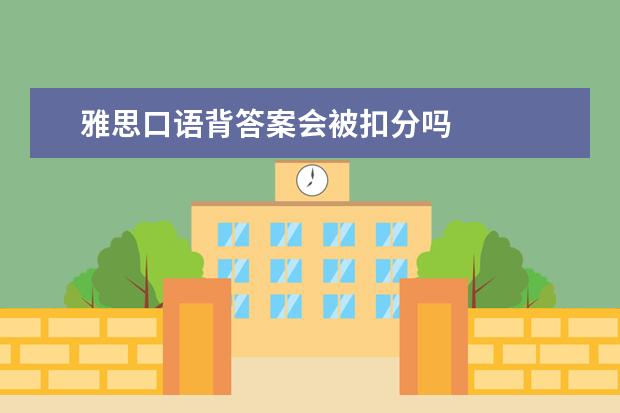 雅思口语背答案会被扣分吗
雅思口语背答案会被扣分吗
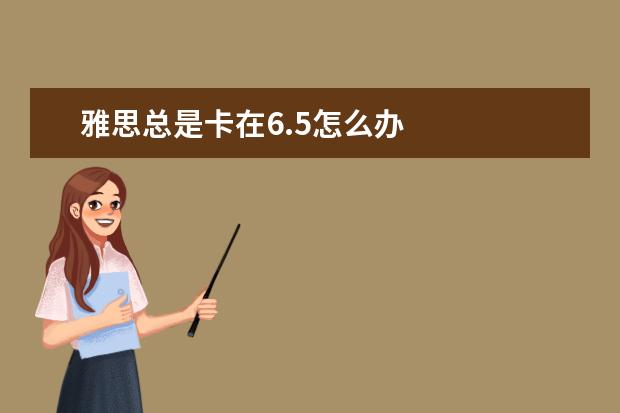 雅思总是卡在6.5怎么办
雅思总是卡在6.5怎么办
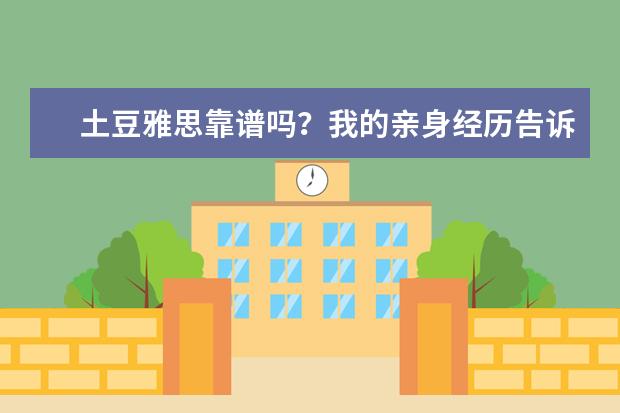 土豆雅思靠谱吗?我的亲身经历告诉你答案
土豆雅思靠谱吗?我的亲身经历告诉你答案
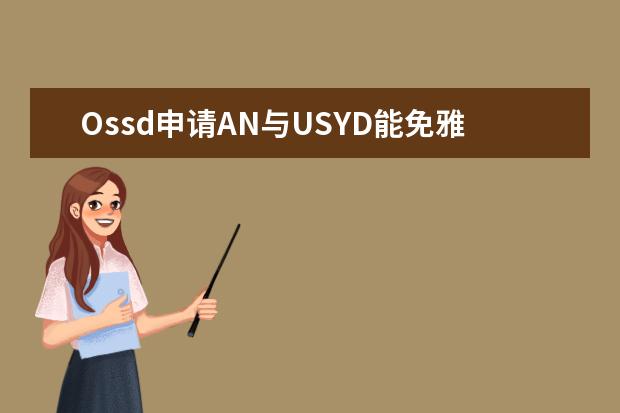 Ossd申请AN与USYD能免雅思 - 答案如何,一起看看!
Ossd申请AN与USYD能免雅思 - 答案如何,一起看看!
 雅思单科可以重考费用/流程/考试形式全解析+利弊分析(重磅官宣!雅思单项重考正式上线,终于能拼分啦!)
雅思单科可以重考费用/流程/考试形式全解析+利弊分析(重磅官宣!雅思单项重考正式上线,终于能拼分啦!)
 雅思单科可以重考费用/流程/考试形式全解析+利弊分析(重磅官宣|雅思单科重考!2024大陆首发,一篇读懂雅思单科重考规则)
雅思单科可以重考费用/流程/考试形式全解析+利弊分析(重磅官宣|雅思单科重考!2024大陆首发,一篇读懂雅思单科重考规则)
 香港城市大学雅思成绩要求 香港留学,各专业雅思和GMAT成绩要求全解析
香港城市大学雅思成绩要求 香港留学,各专业雅思和GMAT成绩要求全解析
 9月19日首都师范大学雅思口语考试安排 雅思UKVI中国考点-UKVI雅思考试特点全面分析及全国考点清单
9月19日首都师范大学雅思口语考试安排 雅思UKVI中国考点-UKVI雅思考试特点全面分析及全国考点清单
 4月26日太原雅思口语考试时间公布(山西太原市10月份雅思考试时间汇总)
4月26日太原雅思口语考试时间公布(山西太原市10月份雅思考试时间汇总)
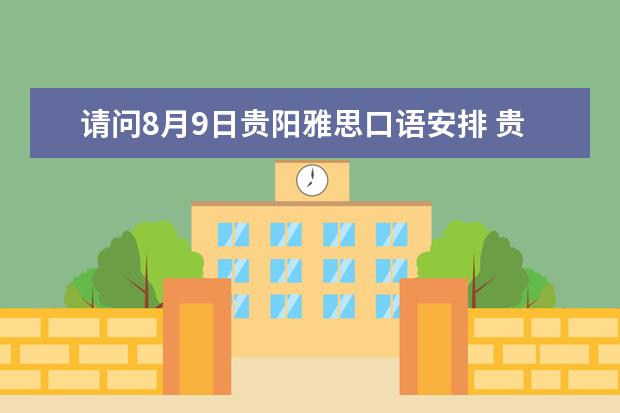 请问8月9日贵阳雅思口语安排 贵阳雅思报名日期
请问8月9日贵阳雅思口语安排 贵阳雅思报名日期